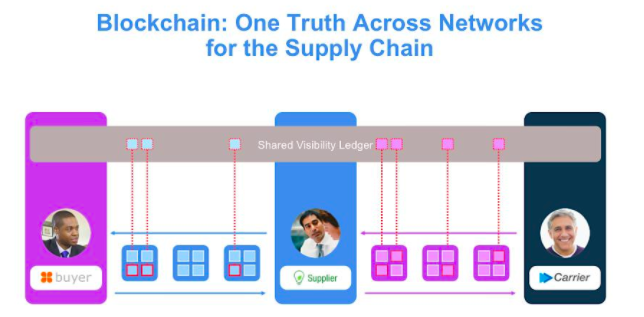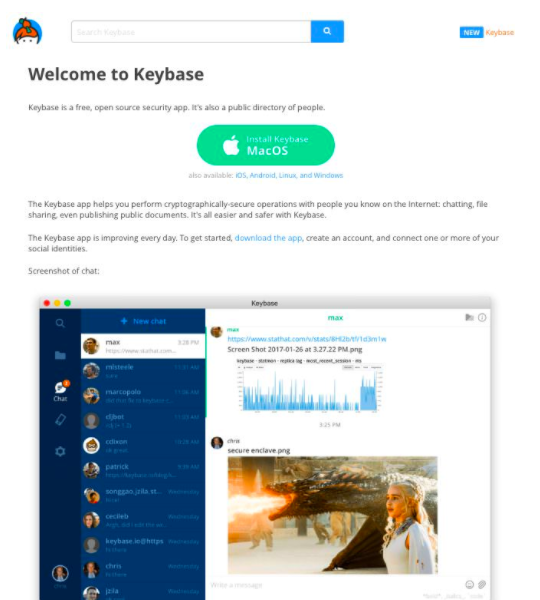In Chapter 2 of the Ultimate Guide to Blockchain Marketing and Cryptocurrency, we share how blockchain could disrupt marketing as we know it by eliminating the digital middleman, increasing transparency, and giving consumers control over sharing their information.
Blockchain is more than just Bitcoin, and it will have a huge impact on all industries, not just cryptocurrency. One of the major areas in which blockchain is exploding is digital marketing.
Why? One, the biggest aspect of blockchain technology is that it allows for decentralized communication between different parties, and two, everything is documented and verified. Keep these two points in mind throughout this piece. (Also, you may find this Blockchain Marketing glossary helpful.)
So how does blockchain marketing differ from marketing as we know it today?
First, the TL;DR: Eric explains the recent impact of blockchain marketing.
And, here’s the more in-depth explanation.
1.Blockchain Eliminates the Digital Marketing Middleman
Digital marketing now utilizes “middlemen” that control the territory between advertisers and users.
Let’s take Search Engine Marketing (SEM), for example.
One of the reasons a website might choose to display Google banner ads on their site as opposed to organically finding advertisers is because Google is a source of trust. If a company is “vetted” by the Google Display Network, then it’s likely that it’s a credible business that won’t damage the brand of the host website. Google also handles the processing of transactions so that the website owner is paid fairly for clicks generated on the advertiser’s ad.
In this case, Google is essentially the middleman between the advertiser and the website owner. For that reason, they take a cut of the profits.
Now imagine SEM through the blockchain.
Website owners wouldn’t have to go through the Google Display Network to find advertisers because each “user” would already be validated and verified. The advertiser would know that they’re paying for genuine clicks, and the site owner can trust that the amount they’re being paid is fair. There wouldn’t be any need for Google (or Facebook, or any other intermediary).
What it all comes down to is a decrease in extra costs and an increase in your profit margin.
2. Blockchain Builds Trust With Transparency
One of the problems that many companies, particularly large ones, face is consumer trust. People are skeptical about everything from where their food comes from to the factory conditions in which their clothes were made.
Companies gain trust through transparency, which blockchain marketing can provide in a way that other tactics don’t.
Another value proposition of blockchain is the level to which everything is documented and verified. For example, a customer could get a “behind-the-scenes” look of a retailer’s supply chain – and find out exactly how the product was made. The transparency allows the consumer to discover whether a company is trustworthy about their claims or not.
In one case study, Walmart teamed up with IBM on a project to make their supply chain process more transparent. With blockchain digitally tracing where their pork products came from, starting at the retailer’s base in China, consumers got the proof needed to trust what Walmart was selling them.

3. Blockchain Drives Public Accountability
Corporate social responsibility (CSR) is another murky term. The transparency and documentation of blockchain can be used to create digitized contracts which the public can view, and use to hold companies accountable.
4. Blockchain Gives the Consumer Control Of Their Own Information
The way of the future is to balance advertising with consumer identity concerns. There are already several services out there that offer the user full control of their identity and transaction history, like uPort, MetaMask and Keybase.

This means that marketers will have to earn the customer’s permission in a way that’s completely different than before: blockchain allows consumers to charge for their contact information and attention.
In the future, the marketer could end up paying the user to consume their advertising material. CMO of ConsenSys Amanda Gutterman gave a great example of this in a recent radio show interview, saying that when a brand approaches a user to subscribe to its weekly sales newsletter, the customer can respond with the price for that information.
This would all be done in micropayments, so the price of reading the email could be .003 cents, paid via a cryptocurrency like Bitcoin. Not only will the consumer have power over their own contact information and attention, but marketers will be consistently challenged to prove the value of their interactions and content.
5. Blockchain Offers Benefits for Branding
There’s a certain cache in having a Bitcoin-friendly payment method and/or using blockchain to formalize digital negotiations between companies: you’ll be seen as a forward-thinking organization.
A company that embraces emerging technology is considered ‘edgy’ and ‘innovative’ and you could even create a PR strategy around moving to the blockchain advertising agency.
On to the Future
For marketers innovative enough to jump on it, the possibilities are endless. The blockchain will disrupt a lot of industries in the coming years by removing the middlemen and allowing different players into the space to interact through smart contracts.
While blockchain is closely associated with cryptocurrency, that shouldn’t overshadow its uses in digital marketing. Companies are already leveraging blockchain technology to increase transparency and reduce friction, and marketers can leverage these tools to acquire more customers at a lower cost.





